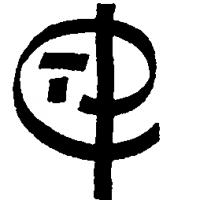
Making the Esperanto dictionary bigger and more diverse. Seerdero project.
dari 3arin2, 7 Oktober 2019
Pesan: 22
Bahasa: English
3arin2 (Tunjukkan profil) 7 Oktober 2019 06.07.07
https://docs.google.com/document/d/19jpCxGNZtzgIjR...
Hello, anyone who decided to visit this page! =)
While Esperanto as a language possesses more than 3000 basic word roots and the possibility of roots combination as a way of creating new words, it was pointed out many times by many people that Esperanto is not very diverse in its vocabulary. Also, the fact that the language has only a few thousand basic roots means that the range of synonyms in some contexts can be a bit limited.
What I propose is starting a project the goal of which is to create an extensive set of more than 3000 additional roots based on the roots used in languages around the whole world.
This project can both be fully independent from the Esperanto language as a whole, used only by some enthusiast and may even become a separate language on its own, or it can potentially become a true, integral part of Esperanto in the future if the idea gets popular enough!
Ludwik Lejzer Zamenhof was never against adding new words into the language. Here is a quote of his, taken from Fundamento de Esperanto:
''Tio ĉi povus naski la penson, ke nia lingvo restos ĉiam rigida kaj neniam disvolviĝos... Ho, ne! Malgraŭ la severa netuŝebleco de la fundamento, nia lingvo havos la plenan eblon ne sole konstante riĉiĝadi, sed eĉ konstante pliboniĝadi kaj perfektiĝadi; la netuŝebleco de la fundamento nur garantios al ni konstante, ke tiu perfektiĝado fariĝados ne per arbitra, interbatala kaj ruiniga rompado kaj ŝanĝado, ne per nuligado aŭ sentaŭgigado de nia ĝisnuna literaturo, sed per vojo natura, senkonfuza kaj sendanĝera.''
The idea of the project is to take all of the most used languages on Earth and, calculating that every 1-2 million speakers equal one word, to create a list of new vocabulary roots. For example, Mandarin will add about 460 new roots, Hindi - 135 new roots, Russian - 75 new roots and Galician - 1 new root. The same goes for Arabic, Greek, Turkish, Kazakh, Vietnamese, Quechua, Berber, and many-many more!
This will ensure that the language will be enriched with thousands of words, each of which can inspire people to get acquainted with many cultures since each word can be a link that connects the speaker with any given culture!
The name of the project may be changed in the future. As of today, it is named Seerdero, which can roughly be translated as ''The foreign language that harmonizes'', consisting of the roots ''se'' (Xié|协 - assist, harmonize) and ''erder'' (Erdera - a foreign language), with the first root taken from the biggest language of the list - Mandarin, and the second root taken from the smallest language of the list - Basque.
The list of all the languages used in the project is going to be completed later and published here, while the list of all the words will have to be contained somewhere else, maybe on a separate site or in some kind of a programmed Excel table.
And, even though the full completion of the list will probably take many years and will require the help of hundreds of speakers of many languages, you can personally contribute to the list at any time. If you're interested, write to me on facebook: https://www.facebook.com/www.larinpavel
P.S. If a similar project already exists, let me know as well, please.
LM59650 (Tunjukkan profil) 7 Oktober 2019 06.27.11
With the combinations, that generates more than 250000 words, that makes Esperanto one of the richest language.
I don't think that it is a good idea if the goal is just to create synonyms (without expressing new concepts), it would make the language more difficult to learn, without so much advantages.
It even seems to me that the idea of creating new diverging languages and local dialects is conflicting with the primary goals of Esperanto.
Adding roots from Hindi, Chinese, etc. is interesting if this adds new concepts that cannot be easily expressed with the current vocabulary, not just for creating synonyms.
By the way, why do you expose your proposal in english, not in Esperanto ?
3arin2 (Tunjukkan profil) 7 Oktober 2019 08.24.55
Ethnologue (2019, 22nd edition)
1. Mandarin (language family) ≈ 1/459
2. Spanish ≈ 0/230
3. English ≈ 0/189
4. Hindi ≈ 0/170
5. Bengali ≈ 0/114
6. Portuguese ≈ 0/110
7. Russian ≈ 0/77
8. Japanese ≈ 0/64
9. Western Punjabi ≈ 0/46
10. Marathi ≈ 0/41
11. Telugu ≈ 0/41
12. Wu (language family) ≈ 0/40
13. Turkish ≈ 0/39
14. Korean ≈0/ 38
15. French ≈ 0/38
16. German ≈ 0/38
17. Vietnamese ≈ 0/38
18. Tamil ≈ 0/37
19. Yue (language family) ≈ 0/36
20. Urdu ≈ 0/34
21. Javanese ≈ 0/34
22. Italian ≈ 0/32
23. Egyptian Arabic ≈ 0/32
24. Gujarati ≈ 0/28
25. Iranian Persian ≈ 0/26
26. Bhojpuri ≈ 0/26
27. Min Nan (language family) ≈ 0/25
28. Hakka ≈ 0/24
29. Jinyu ≈ 0/23
30. Hausa ≈ 0/22
31. Kannada ≈ 0/21
32. Indonesian ≈ 0/21
33. Polish ≈ 0/19
34. Yoruba ≈ 0/18
35. Xiang Chinese (language family) ≈ 0/18
36. Malayalam ≈ 0/18
37. Odia ≈ 0/17
38. Maithili ≈ 0/16
39. Burmese ≈ 0/16
40. Eastern Punjabi ≈ 0/16
41. Sunda ≈ 0/16
42. Sudanese Arabic ≈ 0/16
43. Algerian Arabic ≈ 0/14
44. Moroccan Arabic ≈ 0/13
45. Ukrainian ≈ 0/13
46. Igbo ≈ 0/13
47. Northern Uzbek ≈ 0/12
48. Sindhi ≈ 0/12
49. North Levantine Arabic ≈ 0/12
50. Romanian ≈ 0/12
51. Tagalog ≈ 0/11
52. Dutch ≈ 0/11
53. Sa’idi Arabic ≈ 0/11
54. Gan ≈ 0/11
55. Amharic ≈ 0/11
56. Northern Pashto ≈ 0/10
57. Magahi ≈ 0/10
58. Thai ≈ 0/10
59. Sraiki ≈ 0/10
60. Khmer ≈ 0/8
61. Chhattisgarhi ≈ 0/8
62. Somali ≈ 0/8
63. Malay ≈ 0/8
64. Cebuano ≈ 0/8
65. Nepali ≈ 0/8
66. Mesopotamian Arabic ≈ 0/8
67. Assamese ≈ 0/8
68. Sinhala ≈ 0/8
69. Northern Kurdish ≈ 0/7
70. Hejazi Arabic ≈ 0/7
71. Nigerian Fulfulde ≈ 0/7
72. South Azerbaijani ≈ 0/7
73. Greek ≈ 0/7
74. Chittagonian ≈ 0/7
75. Kazakh ≈ 0/6
76. Deccan ≈ 0/6
77. Hungarian ≈ 0/6
78. Kinyarwanda ≈ 0/6
79. Zulu ≈ 0/6
80. South Levantine Arabic ≈ 0/6
81. Tunisian Arabic ≈ 0/6
82. Sanaani Spoken Arabic ≈ 0/6
83. Min Bei Chinese (language family) ≈ 0/6
84. Southern Pashto ≈ 0/5
85. Rundi ≈ 0/5
86. Czech ≈ 0/5
87. Ta’izzi- Adeni Arabic ≈ 0/5
88. Uyghur ≈ 0/5
89. Moin Dong Chinese (language family) ≈ 5
90. Sylheti ≈ 0/5
Continuation with Nationalencyklopedin (2010)
1. Zulu ≈ 0/5
2. Czech ≈ 0/5
3. Kinyarwanda ≈ 0/5
4. Dhundhari ≈ 0/5
5. Haitian Creole ≈ 0/5
6. Eastern Min (inc. Fuzhou dialect) ≈ 0/5
7. Llocano ≈ 0/5
8. Quechua ≈ 0/4
9. Kirundi ≈ 0/4
10. Swedish ≈ 0/4
11. Hmong ≈ 0/4
12. Shona ≈ 0/4
13. Hiligaynon/Ilonggo (Visayan) ≈ 0/4
14. Mossi ≈ 0/4
15. Xhosa ≈ 0/4
16. Belarusian ≈ 0/4
17. Balochi ≈ 0/4
18. Konkani ≈ 0/4
Other languages of which I am aware:
1. Tajik 0/4
2. Armenian ≈ 0/3
3. Tatar ≈ 0/3
4. Danish ≈ 0/3
5. Finnish ≈ 0/3
6. Turkmen ≈ 0/3
7. Hebrew ≈ 0/2 or 0/4
8. Kyrgyz ≈ 0/2
9. Catalan ≈ 0/2
10. Norwegian ≈ 0/2
11. Georgian ≈ 0/2
12. Chuvash ≈ 0/1
13. Yiddish ≈ 0/1
14. Galician ≈ 0/1
15. Bashkir ≈ 0/1
16. Irish ≈ 0/1
17. Chechen ≈ 0/1
18. Basque ≈ 1/1
If your language wasn’t mentioned here, feel free to write to me about it! =)
Altebrilas (Tunjukkan profil) 7 Oktober 2019 09.13.13
Kaj ĉu tiu justo ne pli gravas en organizoj kiel UNO (aŭ UNESCO kiam temas pri lingvoj), ol en la esperanta leksikono?
3arin2 (Tunjukkan profil) 7 Oktober 2019 09.15.05
LM59650:I thought that the number of roots was closer to 20000, in modern Esperanto...Today the fundamental dictionary has a total of 5258 words, 4711 of which are roots. http://www.akademio-de-esperanto.org/akademia_vort...
With the combinations, that generates more than 250000 words, that makes Esperanto one of the richest language.
I don't think that it is a good idea if the goal is just to create synonyms (without expressing new concepts), it would make the language more difficult to learn, without so much advantages.
It even seems to me that the idea of creating new diverging languages and local dialects is conflicting with the primary goals of Esperanto.
Adding roots from Hindi, Chinese, etc. is interesting if this adds new concepts that cannot be easily expressed with the current vocabulary, not just for creating synonyms.
By the way, why do you expose your proposal in english, not in Esperanto ?
In absolute numbers, that's comparable to a 4-5 years old native speaker. If we add in all of the combined words, it makes the language enough for interpersonal communication and literal translations but many of the compound words are pretty long. Just as with natural languages, longer words appear a bit cumbersome.
Compare: Glove-Handschuh
Longer words can look better in some cases, Participate-Teilnehmen, Entertainment-Unterhaltung but even in such cases they seem pretty big.
In any case, the main goal of the project is just to bring in more diverse international vocabulary rather than the Latin-based international vocabulary. Even in romance languages like Portuguese, there are tons of unique and interesting words like cafuné (caressing your loved one's hair, but I guess in our project it can have a more general meaning of caressing)! And imagine how much things can be found in other languages like Arabic and many others (although it would be necessary to simplify the sounds).
I started this topic in English so that even beginners can participate in this project. It is very unlikely to find people who are speakers of rarer languages and at the same time know Esperanto well enough to read the article completely. In fact, even though I can understand some texts and audiobooks in Esperanto, I doubt that I would've been able to write this article as precisely as I could with my level of English. (My level is still pretty basic)
Zam_franca (Tunjukkan profil) 7 Oktober 2019 16.38.57
Arin, Esperanto estas kiel ĝi estas, eĉ se ĝi evoluas kaj evoluos. Mi estas por enigi vortojn, kiuj venas el ekzemple aziaj lingvoj, el la araba aŭ en lingvo kiel keĉuo (Quechua) aŭ ajmaro (Aymara) aŭ ankaŭ el gaelaj lingvoj, kiel en Francujo la bretona. Mi parolas pri enigi vortojn. Bonvolu kompreni la malsimilecon. Mi ne deziras, ke oni forigas vortojn, kaj se ili havas sufiĉe da sinonimoj (ekzemple : ekspliki ne utilas laŭ mi), mi estimas, ke oni devas lasi ilin al akademiuloj kaj progresintoj.
Dum la estonto, aperos novaj vortoj, certe el Ĉinujo. Tiuj vortoj, se Esperanto ne kapablas "afiksi" ilin, bezonas veni el, tie, la ĉina lingvo.
Enigi keĉuajn aŭ bretonajn vortojn ne estas facila. Sed, eĉ se ja estas bretona esperanta vortaro, multe da netradukeblaj vortoj certe ja ekzistas kiam ili venas el malkonitaj kulturoj. Se oni disvastigus Esperanton, oni povos traduki ilin, ekzemple simple per aldoni o-n.
sergejm (Tunjukkan profil) 7 Oktober 2019 17.53.48
Por pruntepreni vortojn el la ĉina kaj multaj aliaj lingvoj, en Esperanto mankas sonoj.
Plej ofte, dekomence Eŭropaj lingvoj prunteprenas ĉinan vorton, ekz. "panda", poste Esperanto prunteprenas la vorton, aldonante -o: "pando".
Scott54 (Tunjukkan profil) 8 Oktober 2019 22.13.41
Enigi keĉuajn aŭ bretonajn vortojn ne estas facila. Sed, eĉ se ja estas bretona esperanta vortaro, multe da netradukeblaj vortoj certe ja ekzistas kiam ili venas el malkonitaj kulturoj. Se oni disvastigus Esperanton, oni povos traduki ilin, ekzemple simple per aldoni o-n. my ip birthday wishes tnebPor pruntepreni vortojn el la ĉina kaj multaj aliaj lingvoj, en Esperanto mankas sonoj.
thyrolf (Tunjukkan profil) 9 Oktober 2019 07.24.26
Alia lingvo, kiu prenas radikojn el multaj lingvoj, estas LiDePla (lingvo de planedo)
Metsis (Tunjukkan profil) 10 Oktober 2019 06.29.14



